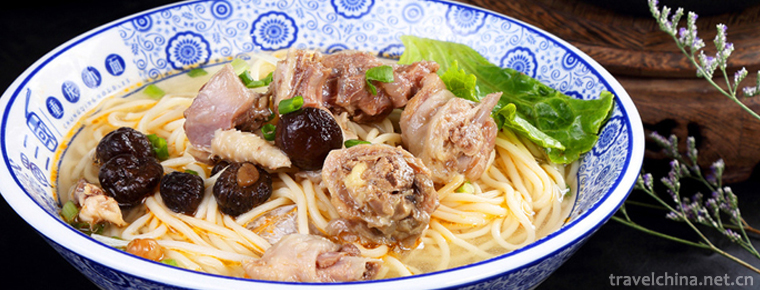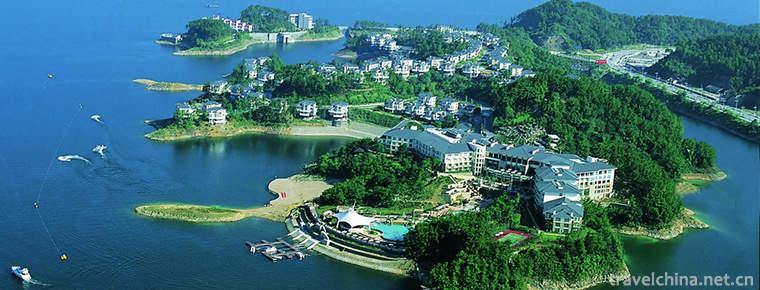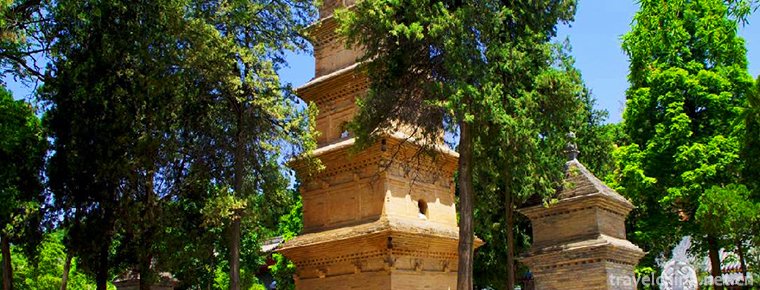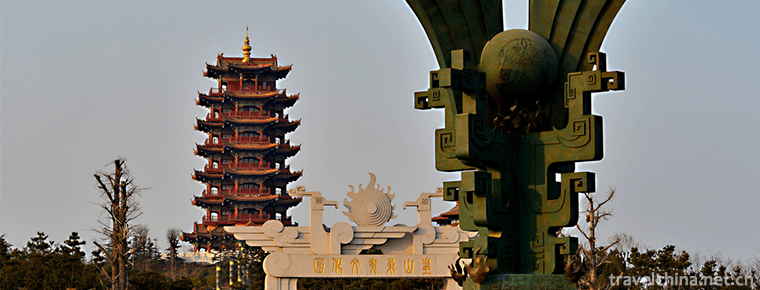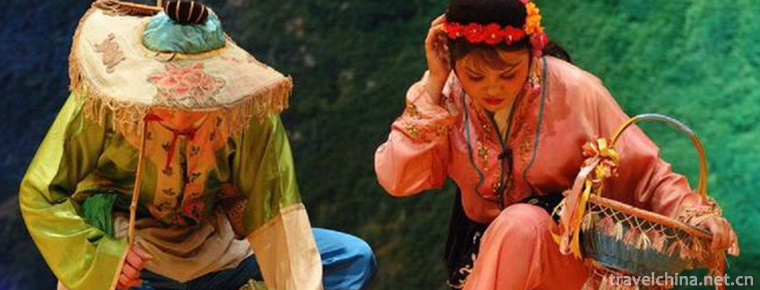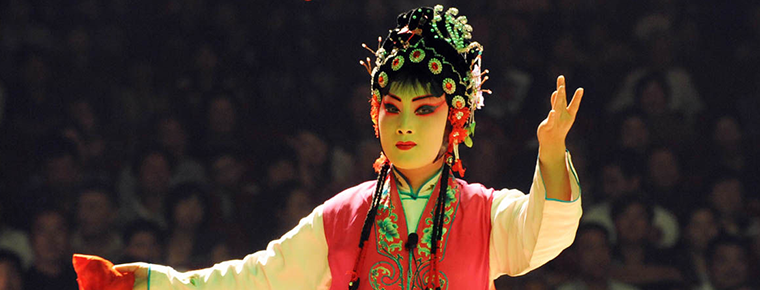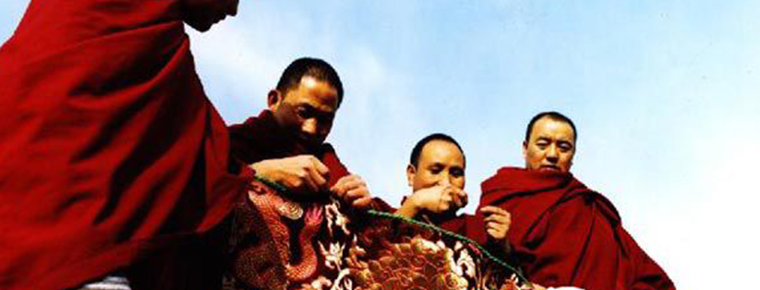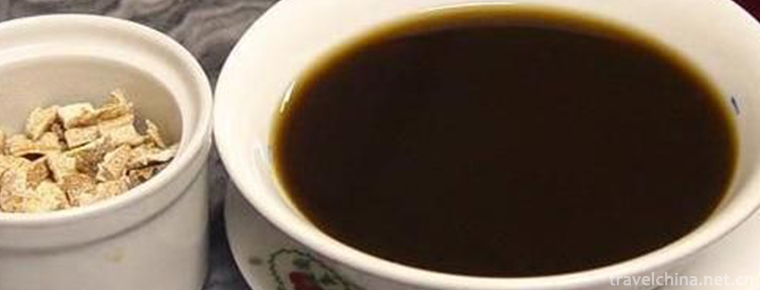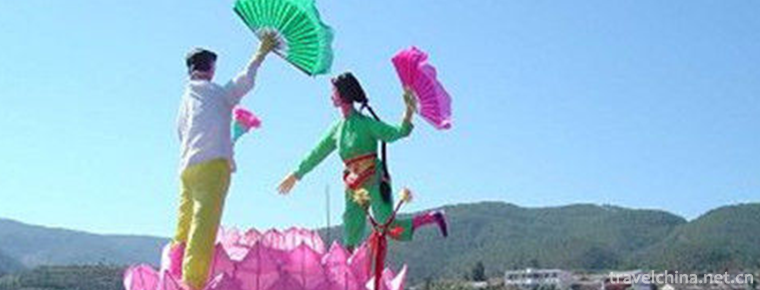Taiwanese Opera
Taiwanese Opera
Gezi Opera, a local traditional drama in Zhangzhou and Xiamen, Fujian Province, is one of the national intangible cultural heritage.
Gezi Opera is based on Southern Fujian Gezi, which absorbs the nutrition of Liyuan Opera, Beiguan Opera, Gaojia Opera, Chaozhou Opera and Peking Opera. At the beginning of the 20th century, Gezi Opera was popular on Taiwan Island, and soon spread to Xiamen, and quickly spread to southern Fujian and Southeast Asia where overseas Chinese live.
On May 20, 2006, Gezi Opera was approved by the State Council of the People's Republic of China and listed in the first batch of national intangible cultural heritage catalogues, numbered IV-64.
historical origin
Gezi Opera is the only one of the existing operas originating from Taiwan, China. In the late Ming and early Qing Dynasties, the folk songs and dances of southern Fujian, such as brocade songs, drums and tea picking, were introduced to Taiwan, and developed into the folk festival singing form of the Yingshen Competition, namely the Gezi Band. Affected by various folk art forms such as Siping Opera, Baizi Opera and Peking Opera, which were subsequently introduced to Taiwan, a new kind of opera was formed after being absorbed. Because its predecessor is "Gezi Band", it is called "Gezi Opera". In 1928, Taiwanese Gezi opera artists fled Taiwan to escape persecution by Japanese colonists, and brought Gezi opera into southern Fujian.
Cultural characteristics
Music
Gezi Opera music is divided into two parts: singing and accompaniment music. Its singing tune belongs to the conjunction of Qupai, which can be combined by homology, homology, homology and homology. Singing tunes can be divided into four main tunes, namely, seven-character tunes, miscellaneous tunes, drug-selling tunes, miscellaneous tunes and tunes. Accompaniment music can be divided into string tunes, playing cards and gongs and drums sutras.
perform
Gezi Opera began with a male-female duet, and later developed into a mature drama with three lines of life, Dan and ugliness, as well as science, music and Bai. Its business has Xiaosheng, Laosheng, Wensheng, Wusheng, once the line has Kudan, Zhengdan, ugly line has three flowers, wife and other roles. All the characters sing in their real voices, of which Kudan is the most distinctive. The main accompaniment instruments of Gezi Opera are Coconut Hu, Dajianxian, Beijing Hu, Suona, single drum, gong, cymbal, etc. According to the different performance forms and theater forms, they can be divided into the ground sweeping songboy position, the field stage songboy play, the inside stage songboy play and so on. With the rise of mass media such as radio, film and television, radio songboy play, film and TV songboy play have emerged one after another.
Metrical pattern
Gezi Opera is more white than white, and its rhythm is free. Among the more than one hundred traditional tunes, there are melodious seven-character tunes, major tunes and memorial tunes, as well as ballad-telling Taiwanese miscellaneous tunes, and various melancholy and sad melodies. In addition, it also absorbs local folk tunes and some opera music as supplements.
Representative repertoire
The content of Gezi Opera is mainly about singing folk stories. Its representative repertoires are Chen Sanwuniang, Liu Xiufu, Eight Immortals Crossing the Sea, Jigong Zhuan, Liang Shanbo and Zhu Yingtai, etc. It emphasizes loyalty and filial piety, and generally has no fixed script. Up to now, it still follows the way of "Mr. Opera" telling the opera and distributing the roles.
Inheritance and protection
Inheritance value
Since its birth, opera troupes and artists across the Straits have exchanged performances continuously. As a valuable art form shared by people on both sides of the Straits, opera has become an important link to maintain the spiritual culture of people on both sides of the Straits. The protection and development of Gezi Opera is of great significance to the promotion of Chinese traditional opera culture and the peaceful reunification of the motherland.
Inheritance status
With the progress of society, influenced by the form of modern culture and art and popular fashion, Gezi Opera is now mainly popular among middle-aged and old people, and young people are no longer interested in it. This situation has greatly affected the survival and continuity of Gezi Opera, and measures need to be taken to protect it.
Inheriting characters
Zheng Xiuqin, female, Han nationality, born in 1944 in Longhai, Fujian Province. The second batch of national intangible cultural heritage project Gezi opera representative successors, national first-level actors, representative works include: Chai Toufeng, Pipa Ji, etc.
Wu Ziming, male, Han nationality, born in Xiamen, Fujian Province in 1948. The second batch of national intangible cultural heritage projects, Gezi Opera representative successors, national first-level directors, representative works include: The Soul of the Opera, Xishi and Wuren, and so on.
Ji Zhaozhi, female, Han nationality, born in Xiamen, Fujian in 1933. The second batch of national intangible cultural heritage projects, Gezi Opera representative successors, representative works include: An'an Grandmother, White Snake Biography and so on.
Chen Zhiming, male, Han nationality, born in Longhai, Fujian in 1964. The second batch of national intangible cultural heritage project Gezi opera representative successors, national first-level actors, representative works include: Egret Goddess, Shao Jianghai, etc.
protective measures
Up to 2017, Fujian has innovated the way of inheritance and development of local operas, promulgated Several Opinions on the Inheritance and Promotion of Fujian Opera, strengthened the support of operas, implemented the "Fujian Opera Protection, Inheritance and Promotion Project", "Local Opera Classic Audio and Video Project", established the database of local operas, promoted the operas into the campus, and vigorously promoted the creation, protection and art of operas. The construction of "four centers and one protected area" such as art dissemination, research and ecological protection will build a "national demonstration base for the inheritance and development of local operas". The present 18 local operas in Fujian, such as Fujian Opera, Liyuan Opera, Puxian Opera, Gaojia Opera, Opera of Opera (Xianju) and five cross-provincial operas, such as Peking Opera and Yue Opera, as Puppet Puppet Opera, Puppet Puppet Puppet Opera and Puppet Puppet Puppet Opera will be carried out. Protected.
In June 2016, 129 opera performers participated in the first advanced seminar, divided into scriptwriter class, director class, composer class and stage art class. From July 15 to August 19, Opera Talents Huangpu Phase I conducted intensive training in the Chinese Opera Academy. Subsequently, the tutor conducted a one-year long-distance tutoring for the students, and the students exchanged with their tutors in various ways in the practice process of their respective units. In which, Gezi Opera was inherited and protected.
social influence
Important performances
On October 18, 2008, Taiwanese Tang Meiyun Gezi Opera Troupe and Xiamen Gezi Opera Troupe co-rehearsed the signing ceremony of the large-scale Gezi Opera "Love of Butterflies" at Xiamen Cultural and Art Center.
On November 4, 2018, the Tenth Cross-Strait TV Competition for New Players in Taiwan was held in Xinbei on November 4, and Gezi Opera was displayed on the spot.

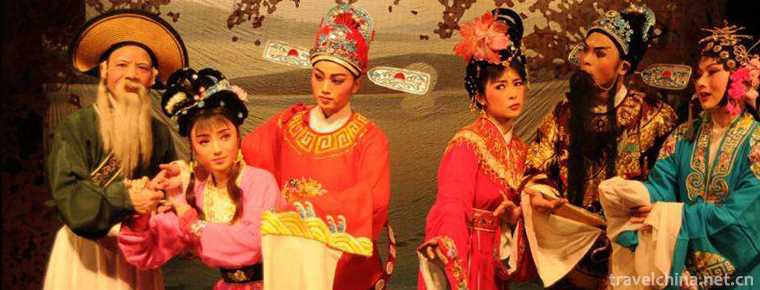
-
Letinous edodes chicken Noodles
Letinous edodes stewed chicken originated in Northern Jiangsu.
Views: 145 Time 2018-10-12 -
Thousand Islet Lake Qiandaohu Scenic Area
Qiandaohu Scenic Area, also known as Xin'anjiang Reservoir, is located in Chun'an County, Hangzhou City, Zhejiang Province..
Views: 190 Time 2018-12-07 -
Pagoda of Xing Jiao Temple
Hingjiao Temple Pagoda is located in the original Hingjiao Temple of Shaoling, Chang'an District, Xi'an Province, Shaanxi Province. It is a famous figure in the history of Buddhist communication.
Views: 116 Time 2018-12-24 -
Cheng Yang eight Zhai
Chengyang Bazhai is located in Sanjiang Dong Autonomous County, Liuzhou City, Guangxi, 19 kilometers away from Sanjiang County. There are eight natural villages in Chengyang Bazhai, commonly known as .
Views: 94 Time 2019-01-05 -
Huangshan Yi Culture Tourist Area
Huangshan Yi Cultural Park is a national AAAA-level tourist attraction, located in the northwest of Linyi Economic and Technological Development Zone..
Views: 264 Time 2019-01-18 -
Tea Picking Opera
Tea-picking opera is a kind of traditional opera popular in Jiangnan and Lingnan provinces. It was mostly produced from the middle of Qing Dynasty to the end of Qing Dynasty..
Views: 208 Time 2019-04-04 -
Two clip string
Two chords, also known as the "big five tones" by the masses. One of the traditional Chinese operas. It is mainly popular in Western Shandong, Eastern and Northern Henan, .
Views: 126 Time 2019-04-28 -
Huangzhong embroidery
Huangzhong heap embroidery is a kind of art that uses the techniques of "shearing" and "heap" to create images. It is mostly used in Tangka production, with Tibetan Buddhist themes.
Views: 287 Time 2019-05-04 -
Herbal tea
Herbal tea is the general name of traditional Chinese herbal medicinal plant beverage. Guangdong herbal tea is the representative of traditional Chinese herbal tea culture. Herbal tea is a kind of bev.
Views: 193 Time 2019-05-13 -
Midu folk songs
"Midu Folk Song" is the general name of the Han and minority folk songs in Midu County, Yunnan Province. Midu folk song is a multi-cultural complex system, which is the convergence and cohes.
Views: 125 Time 2019-06-04 -
Chengdu Yongling Museum
The Royal Museum of Wang Jian, located at No.10 Yongling Road, Jinniu District, Chengdu, covers a total area of 54000 square meters, and is composed of three parts: cultural relics protection area, comprehensive museum and garden protection area..
Views: 122 Time 2020-10-18 -
Dazhou peoples life
In 2018, the per capita disposable income of Dazhou residents was 20881 yuan. The per capita disposable income of urban residents was 30882 yuan, an increase of 8.8%. Among them, salary income was 17597 yuan, an increase of 7.3%; net ope.
Views: 143 Time 2020-12-20
